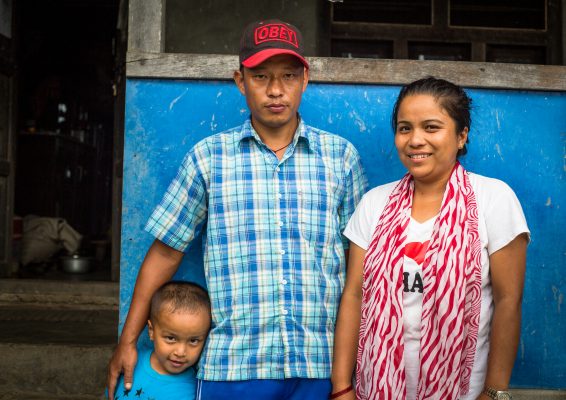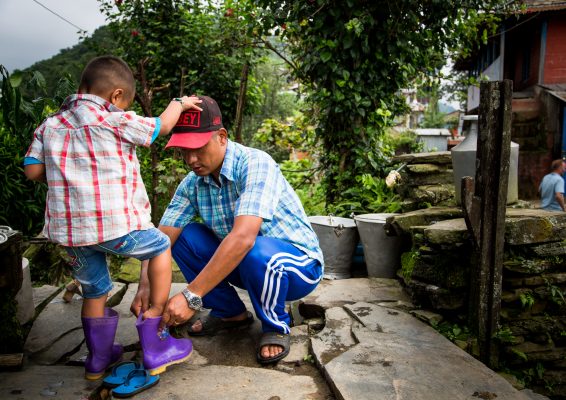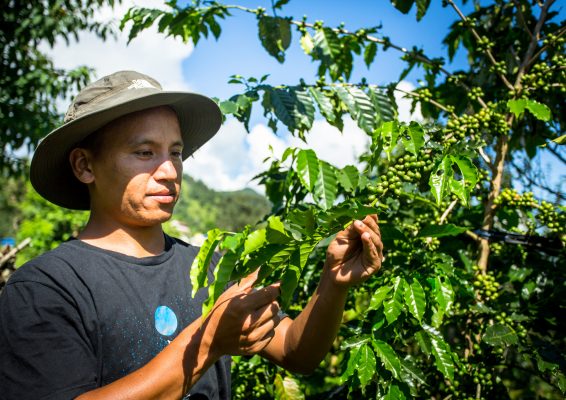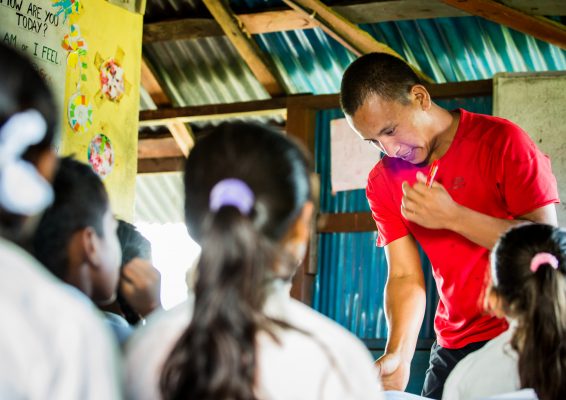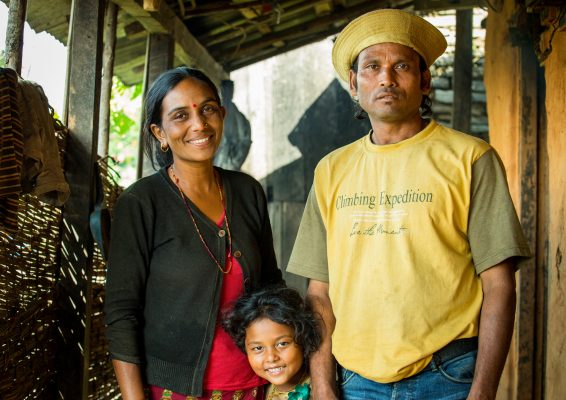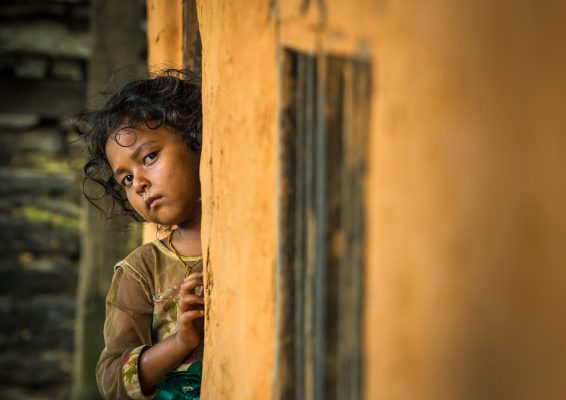The dreamer
Chakra Bir Gurung
For the past three generations of landed upper-class Gurung in the village of Nalma, central Nepal, migration has been something of a status symbol. From the mid-19th century onward, the most revered thing one could do was to serve in the British army abroad, a concept known as Lahore. Even today, Lahore is held in higher regard than education.
But now, as 33-year-old Chakra Bir Gurung explains, the migration hierarchy has expanded. Lahore still holds the top rung, but there are a host of other options for those in the Gurung class that fall just below it, from getting a student visa to Australia or the United States, to finding work in Gulf countries. The option of finding work overseas is also open to the lower-class Dalit, but the prestige for Gurung still holds as they tend to find work with better wages.
Chakra hopes to go to Portugal, which he believes holds a brighter future than the Gulf states where Dalits from Nalma typically go. “From what I hear, if you take your family [to Europe], it will be better later on,” he says. “If you are away, and your family is here, then it is painful. Plus, in my context, I finished [school] and then struggled to find a job here. In European culture, once you have your family there, my child will not have to struggle as I did.”
Chakra previously tried, unsuccessfully, to move to New Zealand. Now, he’s one of only a few people his age left in Nalma. “In the village, only Dalits of my age will be found,” he says. “But even their numbers are decreasing. There is a tradition here of giving out loans to others, and so they can afford to go and work overseas.”
He bemoans the fact that the Dalits’ migration has led to more land in Nalma going unattended. Without a laboring class to tend it, the Gurungs’ land is going barren—Dalits’ land is also barren, and Chakra’s own piece of land is barren. He says that couples who stay behind are able to manage their land together, as can those with parents still young enough to help, but otherwise, it’s too much work to keep the land fruitful.
“Youth are the power house. For instance, we plant paddy, but then in December, we face so many problems related to storing the rice because it cannot be done by women. Youth are needed for that.”
This also goes for village development. Recently, young people in the village helped construct a couple of roads in the area to transport agricultural products, but before that, the three youth clubs in the village hadn’t been up to much.
“Compared to other places, the youth here is not active in village development activities. For instance, in the forest, if there is a need to plant forest products, the elderly cannot do it. They provide directions and supervision, but it’s the youth who actually do the work.”
The question is then raised: does the money sent back by young people working overseas make up for their absence in other ways?
“The money is being spent properly,” he says. “For instance, we established a football field close to the school, and 70 to 75 percent of the contributions for that came from overseas.” Other funds have been invested in growing cardamom to export, as well as in clean water.
For most families though, wages are first spent on education, which often sees village women move with their children to Kathmandu or Pokhara while their husbands are gone to gain access to better schools. This, of course, only furthers migration issues.
Chakra thinks that the youth will stay in the village if the old ways are changed. Chakra says increasing local wages for Dalits could help, as Nalma’s set wage of USD 2 per day for field work is lower than that of other villages, though it does include a lunchtime
The elderly Gurungs have set up an ‘improvement committee’, which determines all aspects of village life. They have kept the wages artificially low, and are unwilling to increase it. With better prospects for earning overseas, young men are less willing to stay in the village under the same terms and conditions.
“There is a slow agricultural revolution happening in the village, to some extent. The previous generation was very firm about what they planted—where millet is grown, where paddy is grown. But the current youth, even myself, has planted cash crops that will earn us an income. The previous generation is resisting. Until they are replaced by the new generation, the migration will continue. But as we take charge, I think the migration rates will reduce.”
In the meantime, though, he still dreams of Portugal.
